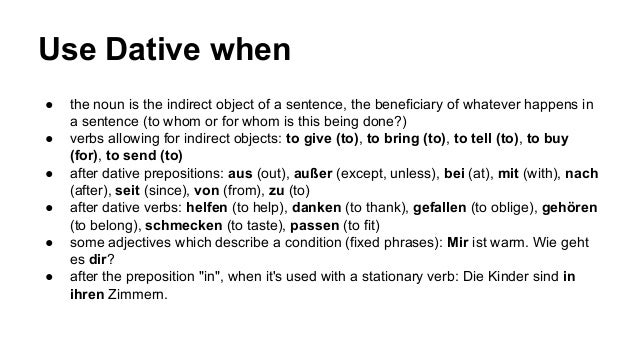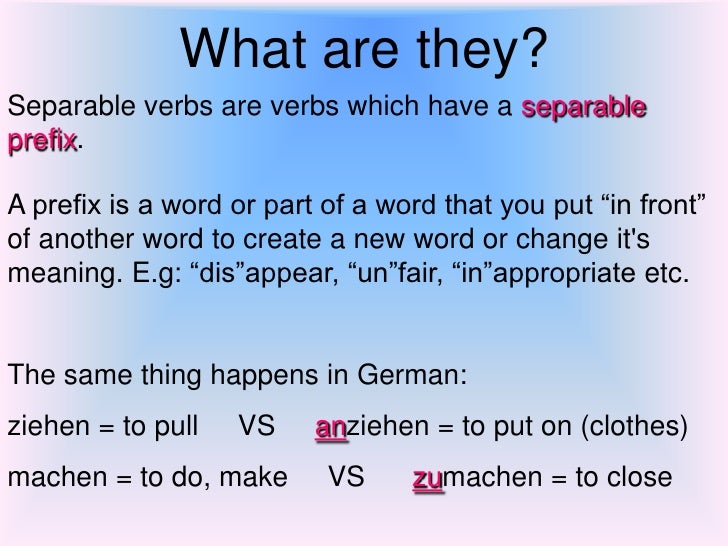
Preparation for A1, A2 German Exams
Asking Questions Politely in German
When you’re in a German-speaking country, you’re bound to find yourself in a number of situations where you need to ask a lot of questions as you find your way around — for example, where the nearest bank is or how long the train will be delayed — or you may simply need to ask someone to speak more slowly. You many find the following vocabulary useful in various situations. These expressions can help you get the attention of someone, excuse yourself, or ask someone to repeat himself:
-
Entschuldigung! (I’m sorry./Excuse me.)
-
Entschuldigen Sie, bitte! (Excuse me, please./I beg your pardon.)
-
Entschuldigung? (Pardon?)
-
Verzeihung bitte. (Excuse me./Pardon me.)
-
Verzeihung! (Sorry!)
-
Wie bitte? (Pardon?/Sorry?/I beg your pardon?) You use this phrase when you don’t understand what someone has said.
-
Könnten Sie mir bitte helfen? (Could you help me, please?)
-
Könnten Sie das bitte wiederholen? (Could you repeat that, please?)
-
Könnten Sie bitte langsamer sprechen? (Could you please speak more slowly?)
 In a restaurant, you can get service with the following expressions. Just remember to start with Entschuldigen Sie, bitte! (Excuse me, please!)
In a restaurant, you can get service with the following expressions. Just remember to start with Entschuldigen Sie, bitte! (Excuse me, please!)
-
Was würden Sie zum Essen empfehlen? (What would you recommend to eat?)
-
Bringen Sie mir/uns bitte die Speisekarte/die Rechnung. (Please bring me/us the menu/check.)
-
Könnten Sie bitte einen Löffel/eine Serviette bringen? (Could you bring a spoon/a napkin, please?)
-
Ich hätte gern . . . (I’d like . . .) When ordering food or drink, add the item from the menu to the end of this phrase.
-
Wo ist die Schmuckabteilung/Schuhabteilung? (Where is the jewelry/shoe department?)
-
Wo finde ich die Rolltreppe/die Toiletten? (Where do I find the escalator/restrooms?)
-
Haben Sie Lederwaren/Regenschirme? (Do you carry leather goods/umbrellas?)
-
Wie viel kostet das Hemd/die Tasche? (How much does the shirt/bag cost?)
-
Könnten Sie das bitte als Geschenk einpacken? (Could you wrap that as a present, please?)
 When you’re walking around town and need directions on the street, the following questions can help you find your way:
When you’re walking around town and need directions on the street, the following questions can help you find your way:
-
Wo ist das Hotel Vierjahreszeiten/Hotel Continental? (Where is the Hotel Vierjahreszeiten/Hotel Continental?)
-
Gibt es eine Bank/eine Bushhaltestelle in der Nähe? (Is there a bank/bus stop near here?)
-
Könnten Sie mir bitte sagen, wo die Post/der Park ist? (Could you tell me where the post office/park is, please?)
-
Wo kann ich eine Fahrkarte kaufen? (Where can I buy a ticket?)
-
Wie viele Haltestellen sind es zum Bahnhof/Kunstmuseum? (How many stops is it to the train station/art museum?)
-
Ist das der Bus/die U-Bahn zum Haydnplatz/Steyerwald? (Is this the bus/subway to Haydnplatz/Steyerwald?)
-
Wie oft fährt die Straßenbahn nach Charlottenburg/Obermenzing?(How often does the streetcar go to Charlottenburg/Obermenzing?)
-
Ich möchte zum Hauptbahnhof. In welche Richtung muss ich fahren?(I’d like to go to the main train station. In which direction do I need to go?)
-
Von welchem Gleis fährt der Zug nach Köln/Paris ab? (Which track does the train to Cologne/Paris leave from?)

Introduction
German has three words — der, die and das — for the definite article the. To make matters more confusing for someone learning German, these three definite articles change spelling according to the case of the noun that they appear with in a sentence. The same is true for the indefinite articles. Just as English has two indefinite articles — a and an — that you use with singular nouns, German also has two indefinite articles (in the nominative case): ein for masculine- and neuter-gender words and eine for feminine-gender words. Another similarity with English is that the German indefinite article ein/einedoesn’t have a plural form. Depending on how you’re describing something plural, you may or may not need to use the plural definite article. Consider the following generalized statement, which requires no article: In Zermatt sind Autos verboten. (Cars are forbidden in Zermatt [Switzerland].) The following table shows you the definite articles and the corresponding indefinite articles (nominative case):
In German language, there are three definite articles for nouns in singular: der for masculine nouns, die for feminine nouns and das neutral nouns. German native speakers know mostly intuitively what the article of each noun is. However, non-native speakers need to memorize the articles. There are several rules and guidelines determining the articles of some categories of nouns. But beware exceptions.Gender/Number Definite (the) Indefinite (a/an) Masculine der ein Feminine die eine Neuter das ein Plural die (no plural form) - Rules for Article ‘Der’
The following nouns have the article der:
- Nouns for masculine persons and functions/professions: Vater, Pilot, Arzt;
- Names of seasons: Frühling, Sommer, Herbst, Winter;
- Names of months: Januar, Juli, Dezember;
- Names of days of the week: Montag, Dienstag, Sonntag;
- Names of compass directions: Nordwest(en), Süd(en);
- Names of precipitations: Regen, Schnee, Hagel;
- Names of car brands: Audi, BMW, Mercedes;
- Names of trains: IC;
- Nouns derived from verbs without suffix: Gang, Fang;
- Names of alcoholic beverages: Cognac, Wein, Whiskey; exceptions: das Bier;
- Names of rivers outside Europe: Amazonas, Mississippi;
- Names of mountains: Mont Blanc, Kilimanjaro; exception: die Zugspitze;
- –er (nouns derived from verbs): Fahrer, Lehrer;
- –ismus: Kapitalismus, Journalismus;
- –ant: Demonstrant, Elefant; exceptions: das Croissant, das Restaurant;
- –ling: Lehrling, Schützling; exceptions: das Dribbling, das Bowling;
- –ner: Rentner, Schaffner, Zöllner; exceptions: das Banner, die Wiener (Wurst);
- –or: Motor, Traktor; exceptions: das Gegentor, das Chlor;
Beware: this is applicable only to nouns in singular. All nouns in plural have the article die.
Beware: diminutives have always the article das: der Kopf → das Köpfchen.
Rules for Article ‘Die’
The following nouns have the article die:- Nouns for feminine persons and functions/professions: Mutter, Friseuse, Ärztin;
- Names of motorcycle brands: Harley Davidson, BMW (only motorcycle), Yamaha;
- Names of planes and ships: Boeing 747, Titanic;
- Cardinal numbers: Eins, Drei;
- Names of plants and trees: Birke, Chrysantheme, Rose; exceptions: der Ahorn, das Veilchen;
- –falt: Vielfalt;
- –heit: Freiheit, Sicherheit;
- –keit: Möglichkeit, Schnelligkeit;
- –schaft: Freundschaft, Mannschaft;
- –t (nouns derived from verbs): Fahrt, Tat;
- –ung: Leitung, Zeitung;
- –ade: Hitparade, Marmelade;
- –age: Garage, Passage;
- –anz: Eleganz, Dominanz;
- –enz: Existenz, Tendenz;
- –ik: Kritik, Musik;
- –ion: Diskussion, Koalition;
- –tät: Identität, Qualität;
- –ur: Agentur, Reparatur;
- –e: Grenze, Lampe; exceptions: der Junge, der Friede;
- –ei: Abtei, Metzgerei; exceptions: das Ei, der Papagei;
- –ie: Diplomatie, Psychologie; exceptions: der Junkie, der Hippie;
- –in: Ärztin, Studentin; exceptions: das Benzin, der Harlekin;
Beware: diminutives have always the article das: die Hand → das Händchen.
- Rules for Article ‘Das’
The following nouns have the article das:
- Diminutives (–chen, –lein): Kaninchen, Fräulein;
- Nouns derived from infinitives: Essen, Schreiben;
- Nouns derived from adjectives: Gute, Böse;
- Names of colors: Rot, Gelb, Blau;
- Almost all of the 112 known chemical elements: Aluminium, Kupfer, Uran; 6 exceptions: der Kohlenstoff, der Sauerstoff, der Stickstoff, der Wasserstoff, der Phosphor, der Schwefel;
- Names of metals: Blei, Messing, Zinn; exceptions: die Bronze, der Stahl;
- Fractions: Drittel (⅓), Viertel (¼); exception: die Hälfte (½);
- –ial: Material, Potenzial;
- –ment: Instrument, Parlament; exceptions: der Konsument, der Zement;
- –nis: Ergebnis, Tennis; exceptions: die Fahrerlaubnis, die Wildnis;
- –o: Auto, Konto; exceptions: die Avocado, der Euro;
- –tum: Quantum, Ultimatum; exceptions: der Reichtum, der Irrtum;
- –um (nouns of Latin origin): Publikum, Museum, Stadium;
Beware: this is applicable only to nouns in singular. All nouns in plural have the article die.
| German Definite Article (English meaning) | Gender (Abbreviation Seen in Dictionaries) | German Example (English meaning) |
|---|---|---|
| der (the) | masculine (m) | der Löffel (the spoon) |
| die (the) | feminine (f) | die Gabel (the fork) |
| das (the) | neuter (n or nt) | das Messer (the knife) |
| die (the) | plural (pl) | die Menschen (the people) |
| Usually Masculine (der) | Usually Feminine (die) | Usually Neuter (das) |
|---|---|---|
| -er (especially when referring to male people/jobs) | -ade, -age, -anz, -enz, -ette, -ine, -ion, -tur (if foreign/borrowed from another language) | -chen |
| -ich | -e | -ium |
| -ismus | -ei | -lein |
| -ist | -heit | -ment (if foreign/borrowed from another language) |
| -ner | -ie | -o |
| -ik | -tum or -um | |
| -in (when referring to female people/occupations) | Ge- | |
| -keit | ||
| -schaft | ||
| -tät | ||
| -ung |
| Usually Masculine (der) | Usually Feminine (die) | Usually Neuter (das) |
|---|---|---|
| Days, months, and seasons: der Freitag(Friday) | Many flowers: die Rose (the rose) | Colors (adjectives) used as nouns: grün (green) das Grün (the green) |
| Map locations: der Süd(en) (the south) | Many trees: die Buche (the beech) | Geographic place names: das Europa(Europe) |
| Names of cars and trains: der Audi (the Audi) and der ICE(the Intercity Express) | Names of aircraft and ships: die Boeing 767 (the Boeing 767), die Titanic (the Titanic) | Infinitives used as nouns (gerunds): schwimmen(to swim) das Schwimmen(swimming) |
| Nationalities and words showing citizenship: der Amerikaner (the American) | Cardinal numbers:eine Drei (a three) | Young people and animals: das Baby (the baby) |
| Occupations: der Arzt(the doctor) | Almost all the chemical elements and most metals: das Aluminium(aluminum) and das Blei(lead) | |
| Names of most mountains and lakes:der Großglockner(the highest mountain in Austria) | ||
| Most rivers outside of Europe: der Amazonas (the Amazon) |
 Conjugation of German Irregular Verbs:
Conjugation of German Irregular Verbs:
 Regular Verbs:
Regular Verbs:
|
|
||||||||||||||||||||||||||||||||
|
|
||||||||||||||||||||||||||||||||
|
|
||||||||||||||||||||||||||||||||
|
|
||||||||||||||||||||||||||||||||
|
|
||||||||||||||||||||||||||||||||
|
|
||||||||||||||||||||||||||||||||
|
|
||||||||||||||||||||||||||||||||
|
|
||||||||||||||||||||||||||||||||
|
|
||||||||||||||||||||||||||||||||
|
|
||||||||||||||||||||||||||||||||
|
|
||||||||||||||||||||||||||||||||
|
|||||||||||||||||||||||||||||||||








